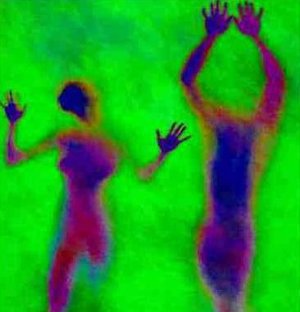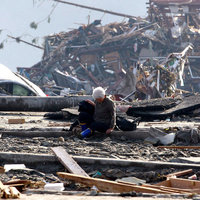What are Dependency &
Withdrawal Like?

Purpose of This Page
This page has been included to help raise awareness among the general public who are fortunate enough to have never been exposed to benzodiazepine dependency and withdrawal.
For those who suspect either you or someone you know may be dependent, please click here.
Firstly, it is important to understand that everyone’s experience of benzodiazepine dependency and withdrawal is different depending on many individual factors. People can experience a range of different symptoms from mild, to moderate or severe.
In much of the literature these symptoms often appear mainly as simple lists of words. What I have tried to do in the example below is to bring these to life by putting them more into real life context.
I also feel that many publications tend to play down the severity of benzodiazepine dependency and withdrawal. After having read countless messages from people actually experiencing it, I have chosen to base the example below on a more moderate to severe case in the hope that doctors and the general public can better understand what many people are actually being subjected to and the nature of the problem facing our society.
It is important to bear in mind that some symptoms may begin to appear for the first time during the treatment due to tolerance and lost drug effect.
Top of Page
Your brain is all foggy and you feel confused and are unable to concentrate. You have severe mood swings and sudden outbursts of aggression. You are plagued by panic attacks that strike without a moment’s notice and you feel like you’re going completely out of your mind.
You look around and your vision is all hazy. Lights are so bright that you need to wear sunglasses. You may find looking at your computer screen or television unbearable. At night time, you see flashes of light in your vision. Like many sufferers, you may develop eye floaters or other eye problems changing the way you see the world.
Sounds are so audible that you may not be able to tolerate normal background noise such as clocks ticking etc. You begin to suffer from a constant ringing in the ears. You feel as though your skin is crawling together with the sensation of pins and needles. Much to your surprise, you may smell unusual odors emanating from your body.
Your balance mechanisms are affected and you stagger like being drunk 24/7.
Your muscles have become extremely tight and tense with joint pains and aches all over. You have tightness around your head, like wearing a headband, and suffer from headaches. You likely grind your teeth in your sleep; possibly to the degree that you need to wear a mouth guard.
You have tightness across your chest, your pulse is racing and the palpitations make it feel as though your hearts beating like a drum. There are times when you have difficulty breathing and begin to panic…
When you try to sleep at night, which you have great difficulty doing, your heart beat becomes audible. You suffer from hot and cold flushes; constantly throwing blankets on and off the bed. You may sweet excessively.
You begin to suffer from involuntary shunts of movement, especially at onset of sleep, and experience muscles spasms throughout the day.
Sex life? Forget it; your sex drive has gone, and it’s probably the last thing on your mind anyway, and even if you make an attempt, it will probably be in vain… Women may also experience menstrual problems.
You have stomach aches and intense nausea with persistent dry reaching. You have to get up several times during the night for toilet visits due to poor retention, or you may become constipated.
You suffer from dry mouth and experience a metallic like taste. You have weight problems (loss or gain) and begin to suffer from burnout to the degree that you can no longer function normally.
You begin to look as though you’re aging much more rapidly than normal and your complexion has become grey with gaunt face and dark sunken eyes. You may develop skin rashes and feel constantly itchy.
Your cognitive impairment becomes so bad that you can no longer drive your car and you’ve lost the ability to work. Your ability to interact “normally” with others has been lost, and your family and social life have been severely damaged.
All this in turn leads to more severe feelings of detachment and depression.
You start to feel a sense of unreality and paranoid thoughts start to set in. You may develop phobias such as claustrophobia or agoraphobia, and find it difficult to leave the house to go shopping etc.
You become emotionally numb and take on the aura / appearance of the commonly referred to “zombie”.
You have been complaining about your deteriorating condition to your doctor, but he doesn’t understand anything much at all about the dangers of the drugs he has been prescribing you and has no knowledge of the nature of dependency and withdrawal effects.
Instead, he misdiagnoses you with something else, or suggests that it’s a simple case of your original complaint having worsened, and proceeds to prescribe you more and more drugs compounding your problem.
You try talking to your friends but nobody understands and they think “it’s all in your head”.
Unlike an injury where you may get some temporary relief by readjusting your posture, the pain and suffering, both mental and physical, runs 24/7 and there’s no escape.
Over a prolonged period, all this torment and suffering, possibly without any understanding of what is actually happening to you, may become too intolerable and thoughts of suicide may begin to enter your mind…
Despite your thought processes having been hijacked, after finally realizing that it has been the drugs causing the problems, you lose faith in your doctor. So you press ahead making your best effort to reduce and stop taking the drugs.
However, as you reduce many of the terrible symptoms intensify. It is scary and you are suffering horribly, but at the same time you feel the need to endure the pain and to somehow make it through to the other side. But how far way the other side is you cannot see and at times you’re not sure whether you’ll be able to make it…
If you are fortunate enough to find the proper guidance, reduction can be made a little easier, but it is extremely difficult, if not impossible, to find the help you need due to a severe lack in education / knowledge and facilities (which your government is responsible for).
After finally stopping the prescriptions completely, it may take months and years to overcome or learn to live with some of these adverse effects and withdrawal symptoms; even under a controlled reduction.
Some of them you may not ever fully recover from at all. (Look no further than Ray Nimmo's story – founder of benzo.org.uk).
In more severe cases you may experience: delirium, hallucinations, autoscopy (outer body experiences), psychotic reactions, respiratory difficulties (especially when combined with other drugs, alcohol etc, as they have additive effects), acute anxiety states, major depression, seizures, convulsions, severe dystonia, akathisia, dyskinesia, etc. and end up in the hospital emergency room several times. The fits can be life threatening, even lethal.
(Cases of death are not uncommon either)
Top of Page
When people suffer from dependency, they are basically experiencing a withdrawal reaction. This can occur during the treatment due to tolerance and lost drug effect, or during reduction and after stopping.
The withdrawal reaction is manifested by an amplification of original symptoms and the development of totally new ones.
For example, in the above example of a moderate to severe case, this person’s initial complaint may have been something as simple as work related stress, but when benzodiazepines are used long term (more than 2~4 weeks), it can be like trying to put out a fire with gasoline.
See Mechanisms of Withdrawal Reactions and Acute Withdrawal Symptoms
Top of Page
“When tolerance develops, “withdrawal” symptoms can appear even though the user continues to take the drug. Thus the symptoms suffered by many long-term users are a mixture of adverse effects of the drugs and “withdrawal” effects due to tolerance.”
(See The Ashton Manual. Prof. C. H. Ashton. Revised Edition August 2002).
“Benzodiazepine withdrawal is a severe illness. The patients were usually frightened, often in intense pain, and genuinely prostrated. The severity and duration of the illness are easily underestimated by medical and nursing staff, who tend to dismiss the symptoms as “neurotic.” In fact, through no fault of their own, the patients suffer considerable physical as well as mental distress.”
(See Benzodiazepine Withdrawal: An Unfinished Story. Prof. C. H. Ashton. 1984).
Top of Page
After reading the above, I hope that more and more people will be able to understand why I feel so strongly about raising awareness about the overprescribing of benzodiazepines and similar drugs. It’s just not good enough; it’s basically torture with chemicals. People deserve better…
Top of Page
As someone who has experienced both doctor induced benzo dependency and the effects of the 3-11 disaster, I immediately became concerned about the overprescribing of prescription drugs to the many thousands of people in the disaster areas.

As it happened, I was writing my Supreme Court appeal in the midst of the disaster, so I took this opportunity to try and raise the alarm by including the following passage in my closing comments…
THE WRITING IS
ON THE WALL
for benzodiazepine use

Dr Andrew Byrne
Redfern NSW Australia
Benzodiazepine Dependence, 1997
“If any drug over time is going to just rob you of your identity [leading to] long, long term disaster, it has to be benzodiazepines.”

Dr John Marsden,
Institute of Psychiatry, London
November 1, 2007
“Benzos are responsible for more pain, unhappiness and damage than anything else in our society.”

Phil Woolas MP,
Deputy Leader of the House of Commons,
Oldham Chronicle, February 12, 2004
“The benzodiazepines are probably the most addictive drugs ever created and the vast army of enthusiastic doctors who prescribed these drugs by the tonne have created the world's largest drug addiction problem.”

The Drugs Myth, 1992
“It is more difficult to withdraw people from benzodiazepines than it is from heroin.”

Professor Malcolm H Lader
Institute of Psychiatry London
BBC Radio 4, Face The Facts
March 16, 1999
“Clearly, the aim of all involved in this sorry affair is the provision of justice for the victims of tranquillisers.”








